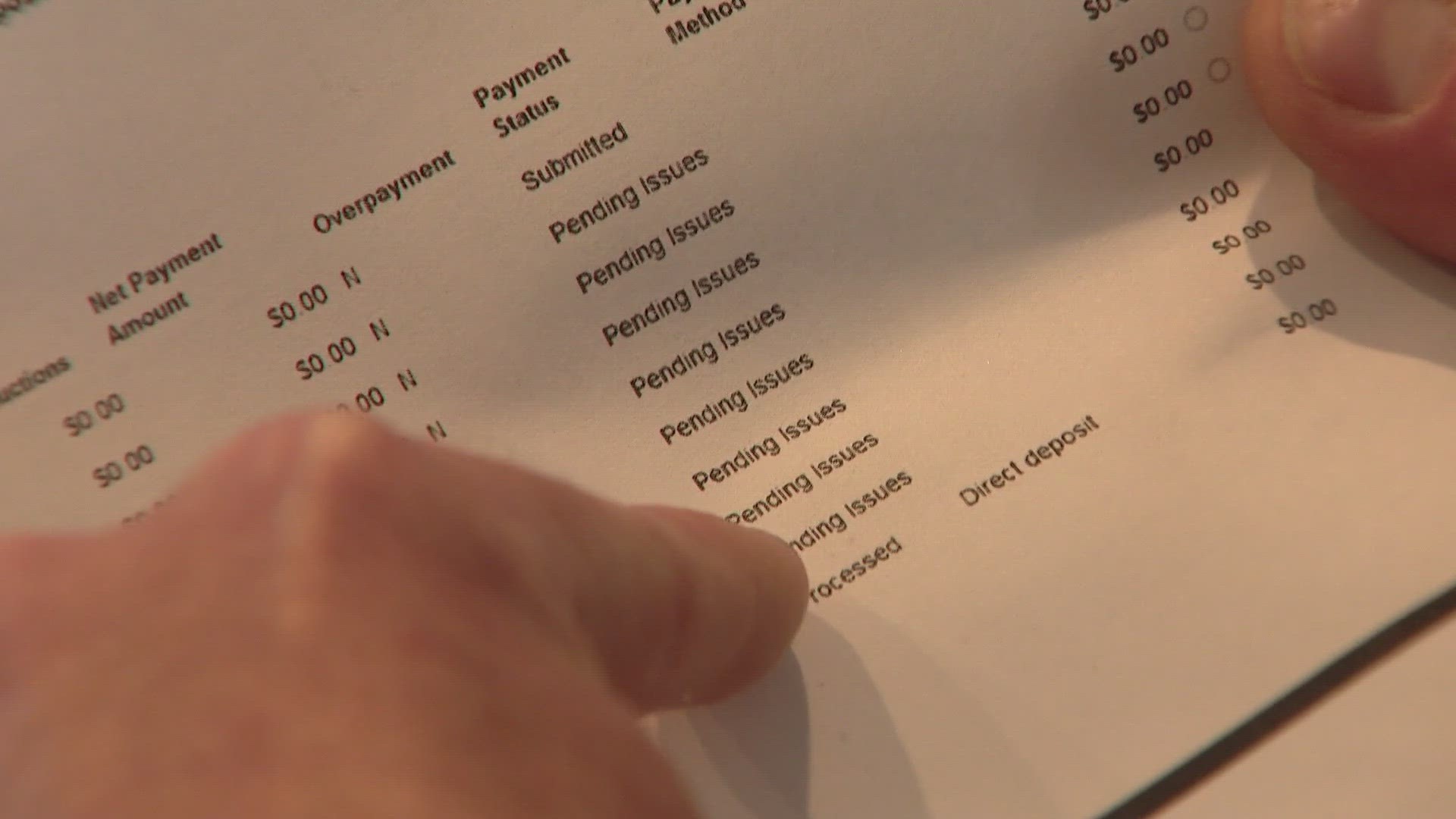COLORADO, USA — When Daniel Keeton lost his job at a pharmaceutical company in December, the state started paying him his unemployment benefit -- $742 per week.
"To help just get us through, you know?" he said. "That's all I need. That's all any of us who are unemployed need."
But in May, the money stopped. Keeton said he was told he needed to complete an additional identity verification step -- a repeat, he said, of his initial verification.
But even after submitting his verification in mid-May, he said he has yet to receive any more unemployment payments -- for going on nine weeks, a total of more than $6,000.
"I've had to shuffle bills, rob Peter to pay Paul kind of thing," he said. "They couldn't tell me how long it would take to process. They couldn't tell me when a final determination would be made. Any details about it."
Colorado's state unemployment office has a new way to make sure people are who they say are, but it's not working for everyone.
During the pandemic, the state used a company called ID.me to verify claimants' identities in an attempt to combat widespread fraud. A spokesperson said the Department of Labor and Employment recently switched to a new ID-proofing process within the DOL system.
"Hackers are using stolen social security numbers from data breaches unrelated to CDLE in these attempts and are constantly adjusting their tactics and practices to better achieve success," the spokesperson said. "We are constantly evolving our systems to identify new patterns of bad actors to stop illegitimate payments from going out."
She said a third of all new unemployment claims in the past six months were made by identity thieves.
The spokesperson said existing claimants shouldn't have to complete the new verification process unless they restart a claim or update their information, which Keeton said he didn't do. Still, he said, he had to submit the extra identity verification and still doesn't know when it'll be processed.
"This is where I think a lot of folks get frustrated with the bureaucracy," he said, adding that he's spent hours on the phone to try to get answers from the department.
He said he's having to cut back on spending for himself and his three daughters to make ends meet and avoid maxing out his credit cards.
"You keep a straight face and smile so they don’t understand and know the behind-the-scenes," he said. "Because they don’t need to know the challenges that Dad is going through."
The spokesperson said she could not speak to specific cases -- or say how many people are in a similar position.
In a statement, she said: "If after completing the ID-proofing process, a claimant comes back as high-risk, they may be asked to provide additional identity verification information. There is no set time it takes for such a hold to be cleared. Each hold needs to be investigated for fraudulent activity and determined to be legitimate before it can be cleared. Cases differ in their complexity, requiring different levels of information from claimants to resolve the issue."
SUGGESTED VIDEOS: Latest from 9NEWS

